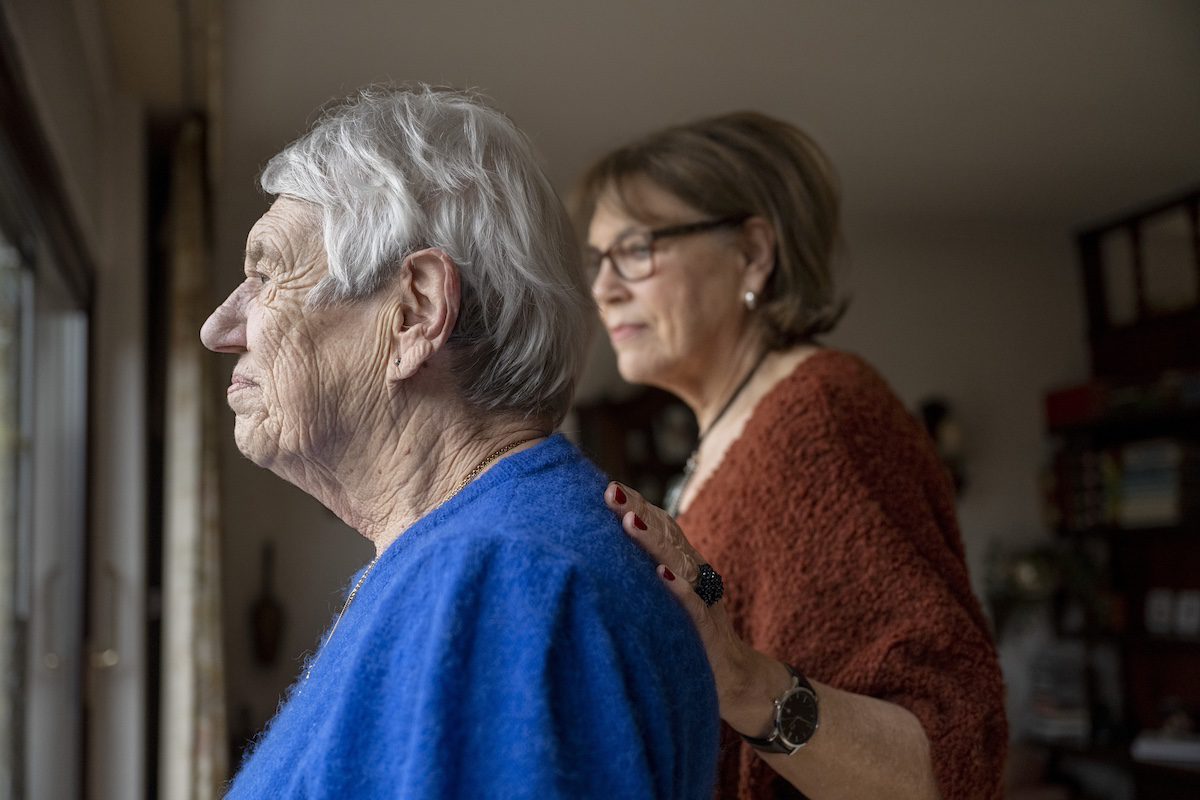Are You Storm-Ready?
Spring is Here!
Spring is here! That means different things to different people. For kids it means more hours playing outside. For families it may mean planning a vacation. But for all of us, it means getting ready for storms!
Spring storms can present problems for anyone, but if you’re a senior, it can be very frightening. And even more so if you’re homebound. Many of our patients are included in these groups. We want to make sure you’re safe this spring!
Be Prepared!
They say if you don’t like the weather around here, just wait a minute! That’s especially true in spring. Those changes can take place very quickly and can be dangerous as well.
So what do you do when the weather becomes threatening? Well, if you aren’t prepared, you may just have to wait it out. That can be risky. The key is being prepared. So if you’re a patient or caregiver, pay attention to these tips for storm preparedness in spring.
1. KEEP IN CONTACT
Family Members
All of us want to know our family members are ok in severe weather. Take time now to communicate about how to stay in touch. Assign at least two family members or friends to make contact with the patient whenever storm watches or warnings occur. Phone is ok, but a personal visit is better!
Arrange for an Alternate Safety-Checker
Some family members may live or work near enough to stop in and check on their loved ones. Others may live in a facility where someone is always nearby. But if not, what do you do?
Find a trustworthy neighbor who can drop in when weather is threatening. Come up with a plan for them to help you communicate during storms. Then make them a part of your post-emergency plan as well.
Special Caregiver Visits
Talk to your caregiver about coming by specifically when weather is bad. You can arrange for extra visits during extreme weather conditions. You may also call us anytime you are concerned.
Charged Cell Phone
If you’re a patient, it helps to know your family is watching out for you. They also want to know you’re ok. But sometimes road conditions make a visit difficult. And phone lines may go down in high winds. So make sure you keep a cell phone charged, plugged in and nearby. If weather changes, you can always be in touch.
2. PLAN NOW
There are several things to keep in mind when preparing for storm season. First, storms themselves can be dangerous. Second, after a storm, power outages can last for days or longer. Here are some ways to be certain that you and your loved ones are prepared for whatever happens.
Medications
Have at least a week’s worth of medication nearby, along with a clear medication list. Make sure this is in an accessible location. Put it in a zippered freezer bag for two reasons. First, you don’t want to get it confused with regular medications. Second, you want to be able to take it with you if you have to evacuate.
Power Dependent Medical Equipment
Contact your local utility company to let them know that you have a medical need for power. This puts you at the top of the list to get your power back on. Also, caregivers and family members should have a list of equipment. This should include battery life. Finally, make sure to check and charge batteries regularly this time of year.
Drinking Water
All of us need water. Make sure to have enough bottled water nearby to last several days in case you or your loved one gets stranded. The standard amount is one gallon of water per person each day in emergencies. This can be used not only for drinking, but for brushing teeth or basic hygiene as well.
LifeLine
Many seniors qualify for a free cell phone with a federal program called LifeLine. You can qualify for Lifeline through a government assistance program or your income. If you don’t have a cell phone, this may be a way to get one. If you already have one, you may be able to receive a credit.
Beware of Temperature
During spring and summer, temperatures can change dramatically. If your power goes out, you may get overheated before you realize it. Excessive heat can increase the risk of dehydration or heat stroke. In spring storms, the temperature may get unseasonably cool and cause additional risks. Extra blankets for cold and battery-powered fans may be excellent safeguards.
Prepare For Darkness
We take electricity for granted. But in severe weather, it can go out very quickly. Make sure to have one or two options for light. Keep a rechargeable flashlight next to the bed connected to the charger. This is a good idea anyway. As a part of your emergency kit, you may also want to have an electric camping lantern. A flashlight or lantern with crank power is better still!
The Old Stand-by
A transistor radio is still an excellent idea. Some require batteries. But in addition to crank-powered flashlights, camping companies now offer crank-powered radios! This can be a great comfort to anyone isolated during a power outage.
Hospice and Palliative Care
Hospice patients, seniors, and those with dementia have extra needs to take into consideration during extreme weather. Please plan ahead for the coming season. If you need advice, help, or counseling, please call (866) 703-4801 (toll-free) or (573) 335-4800 at any time.
Whether you are a patient, caregiver, or family member, we want to support you in any way we can. Our caring, professional staff will answer any questions you may have concerning hospice, palliative care, or patient support. Please do not hesitate to call Crown Hospice in Cape Girardeau, Missouri.


